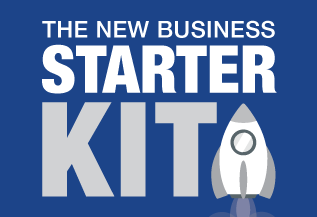Accounting for Psychologists Newsletter #9
It’s been a very exciting month here at Sheridans. We’ve reorganised our teams and revisited our values (it’s kind of like renewing your wedding vows but with more of a business spin!) Our values are about putting people first. That means listening carefully to what you need, and us providing you with excellent service. I’ve mentioned before that as your accountant I feel responsible for all aspects of your financial well-being not just your tax return. That hasn’t changed, in fact we’re going to emphasise that to make sure we’re the most comprehensive Accountants for Psychologists out there!
We’ve added to our Accountant for Psychologists team, so, as well as our very capable accountant Olivia, who you already know, we now have Sian and Zoe on board too. Sian and Zoe are both highly experienced accountants with an exceptional depth of technical knowledge.
This month we’ll look at the recent changes the Australian Tax Office has made to claiming deductions for working from home.
In response to some queries I’ve had over the month from self-employed psychologists working as contractors at a psychology practice, I’ll
give a brief outline of the tasks that an admin assistant can do for you.
Important Dates for Tax
| 21 March |
Lodge and pay February 2023 monthly business activity statement. |
| 21 April |
Lodge and pay March 2023 monthly business activity statement. |
| 28 April |
Quarter 3 (January to March) activity statements – final date for lodgement and payment – if not using a tax agent |
| 15 May |
Income tax return due date if you are using tax agent and do not have to lodge earlier |
Working from Home 2023
If you work from home to fulfil your employment duties, not just carrying out minimal tasks, such as occasionally checking emails or taking the odd call, you’re entitled to claim some tax deductions. These are for the additional running expenses as a result of working from home like heating or cooling that wouldn’t be on if you weren’t at home that day working.
There are two ways to calculate Working from Home Deductions, the fixed rate method and the actual cost method. The fixed rate method has recently changed, and the new rate is the one that will be used in your 2022–23 income tax returns.
1. Fixed Rate method
With this method you can now claim 67 cents per work hour which will cover the work-related portion of your costs for electricity and gas, mobile and home phone, data, internet, stationery, and computer consumables like printer ink, USBs and cables.
The fixed rate covers the cost of all these things, so you cannot claim a separate deduction for them. It also saves a lot of time, since you won’t need to calculate the exact proportion of your electricity or internet that you use for work. You will need to keep records or receipts for each of these expenses.
Another change to the fixed rate method is that you no longer need to have a dedicated home office. You don't need to have a special room set aside for working from home in order to claim working from home deductions. Good news if you sometimes work from the kitchen table, other times you catch up on paperwork in the living room.
To use the fixed rate method you will need to show the ATO exactly how many hours you work from home using a diary or timesheet for the entire year. This requirement begins on March 1. From 1 July 2022 to 28 February 2023, the ATO will accept a record which represents the total number of hours worked from home -for example a 4 week diary. However, from 1 March 2023 onwards, you will need to record the total number of hours you work from home.
Another change is that you will make a claim for a separate deduction for the decline in value of assets used while working from home, such as computers and office furniture, and also for their repairs and maintenance. (Previously this was all lumped in with the fixed rate amount.) Also, if you have a dedicated home office space, you can claim a separate deduction for its cleaning costs.
2. Actual Cost method
The second method is the Actual Cost method and it hasn’t changed. In this method you work out the actual work-related portion of all your running expenses and claim that. These are the actual additional running expenses as a result of working from home. To show this you can keep a diary throughout the year showing the number of days you worked from home, or you can keep a detailed diary over 4 weeks which represents your typical working from home pattern.
You need to keep a record of what you spend on expenses, and items you buy to work from home. If it’s something you use for both work and home, like internet costs, you need to calculate what percentage is used for work and also keep a record of how you calculated it.
The tax office will want to see how you worked out your deduction, so you need to keep all the receipts, bills and so on which show the additional running expenses you incurred while working from home.
More deductions for Working from Home
No matter which method is used, when you buy an expensive item, it usually becomes less valuable over time (depreciation). If this item is something you use for work, you can claim this depreciation on your tax. At present, if it costs less than $300 you can claim its depreciation in the year you bought it. For example, if you purchase a printer for $289 which you use 80% of the time for work-related purposes and 20% of the time for private purposes, you can claim a deduction of $231 (80% × $289) in the income year you purchased it.
If the item costs more than $300, use the ATO's depreciation and capital allowances tool to work out how much you can claim over time.
Of course, you’ll need to keep receipts for these items showing when and where you bought them, how much they cost and when you started
using them for work. You’ll also need to show how you work out your percentage of work-related use, such as a diary.
By the way, you cannot claim for coffee, tea, milk and other general household items which might be provided by your
employer at work. No, not even that Tim Tam at 3pm which keeps you going through the afternoon.
You also cannot claim a deduction for the cost of items your employer provides like a laptop or mobile phone, or for expenses which your employer has reimbursed you.
If you have a dedicated home office which is your principal place of work, you may also be able to claim occupancy expenses
like your rent or mortgage, council rates, water rates and home insurance. However, this means that when you sell your home it will be
subject to capital gains tax, so talk to your accountant about whether this is worthwhile for you.
What admin assistance can I expect as a contractor?
If you’re a self-employed psychologist working as a contractor, part of your contract may give you access to the practice’s admin team.
It’s a good idea to be clear on exactly how much assistance you’ll be given. This really came to light for me when I heard that some psychologists I know who are working as contractors have hired their own admin assistants, so they have enough support to be able to focus on working as psychologists.
Here’s a brief outline of the general tasks of an admin assistant.
Customer Service
Answering and directing phone calls and emails: An administrative assistant is often the first point of contact for customers, clients, or other employees who contact the company. They must be able to respond professionally, take messages, deal with queries and direct calls or emails to the appropriate party.
Scheduling
Managing schedules and appointments: Administrative assistants in a psychology practice often manage the calendars of staff. They schedule client appointments and arrange meetings. They may also coordinate travel plans to conferences or seminars.
Billing
Administrative assistants also help with invoicing clients and service providers such as Medicare and private health insurance. They may also record information to keep track of KPIs (Key Performance Indicators) such as number of clients, and billing amounts.
Record keeping
They may need to file paperwork, create and maintain electronic records, and retrieve information as needed. They will keep client information up to date.
In addition, they may also perform a variety of other tasks, such as ordering office supplies, setting up for meetings or events and arranging for staff professional development .
If you're not sure what amount of administrative assistance you're entitled to, it's best to ask rather than assume.
As always, don’t hesitate to contact us for any finance related questions.
Hope you have a wonderful month.
Live long & prosper,
Fairuz and the Accountant for Psychologists team














